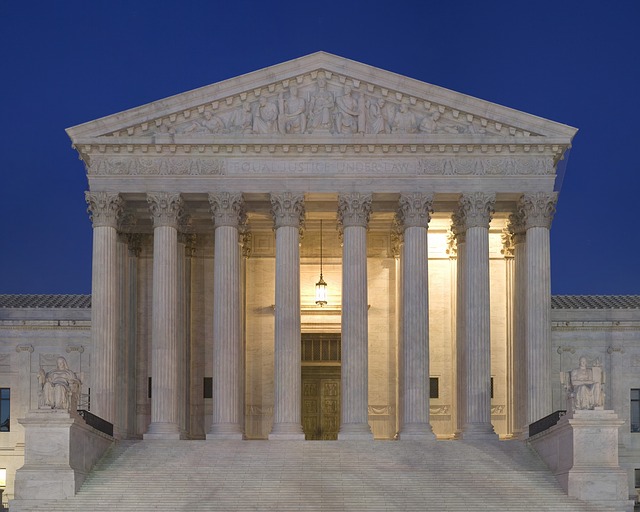
By Susan Pickup, Staff Writer
In the 8-0 decision Endrew F. v. Douglas County School District, the U.S. Supreme Court held in favor of a student with autism and attention deficit disorder (ADD), a small victory for students with disabilities everywhere.[1]
The issue dealt with the federal Individual with Disabilities Education Act (IDEA).[2] IDEA grants states federal funding toward special education as long as the state complies with certain requirements.[3] The state must provide “free appropriate public education” to all students with disabilities, known as the FAPE standard.[4] IDEA requires that those students with disabilities have an individualized education plan (IEP) created by the student’s teachers in order to calculate the student’s needs and progress throughout school.[5]
The Petitioner in this case was a special needs student who was placed in a special education program in a Colorado public school.[6] The Petitioner’s family, however, transferred him to a private school in fifth grade because they believed the public school did not provide an adequate education and IEP for their son under IDEA.[7] Soon after, the Petitioner’s family requested that the school district reimburse them for the tuition of the private school.[8]
The lower courts held in favor of the school district.[9] The district court found that despite that the Petitioner “did not reveal immense educational growth,”[10] it was “sufficient to show a pattern of, at the least, minimal progress.”[11] The Tenth Circuit Court affirmed.[12] The court used precedent from the 1982 Rowley case. It held that Petitioner had a sufficient education under IDEA as long as the IEP was calculated to confer an “educational benefit” that is “merely . . . more than de minimis.”[13] The latter phrase was the court’s addition.
The Supreme Court vacated and remanded. Its reasoning was that a school must offer an individual education plan “reasonably calculated to enable a child to make progress appropriate in light of the child’s circumstances.”[14] Chief Justice Roberts, contradicting the Tenth Circuit, stated “[i]t cannot be right that the IDEA generally contemplates grade-level advancement for children with disabilities who are fully integrated in the regular classroom, but is satisfied with barely more than de minimis progress for children who are not.”[15] The Court further stated “when all is said and done, a student offered an educational program providing “merely more than de minimis” progress from year to year can hardly be said to have been offered an education at all.”[16]
Interestingly, the decision was decided during the confirmation hearings of potential Supreme Court Justice Neil Gorsuch, who is from the Tenth Circuit.[17] As the Supreme Court just vacated his court’s opinion, it was bound to be brought up during questioning.[18]
When asked about it during his confirmation hearings, Gorsuch said, “I was wrong, Senator, because I was bound by circuit precedent, and I’m sorry.”[19] When asked as to why his opinion added the language “merely more than de minimis” to the IDEA standard, Gorsuch said that “to suggest that [he has] some animus against children, Senator, would be mistaken.”[20]
“We have to look to your words to look into your heart,” said Sen. Dick Durbin in response, “and when I look at the word ‘merely,’ it scares me.”[21] As of this writing, how Gorsuch’s responses will ultimately influence his confirmation vote is yet to be seen.
Sources
[1] Endrew F v. Douglas Conuty Sch. Dist., No. 15–827., 2017 WL 1066260 (2017).
[2] Id. at *4.
[3] Id.
[4] Id.
[5] Id.
[6] Id. at *7.
[7] Id.
[8] Id.
[9] Id. at *8.
[10] Endrew F v. Douglas Conuty Sch. Dist., No. 12–cv–2620–LTB, 2014 WL 4548439, at *9 (D. Colo. 2014).
[11] Endrew supra note 1, at *8.
[12] Id. at *8.
[13] Id.
[14] Id. at *10.
[15] Id. at *11.
[16] Id. at *12.
[17] NPR, Supreme Court Rules in Favor of A Special Education Student, http://www.npr.org/sections/ed/2017/03/22/521094752/the-supreme-court-rules-in-favor-of-a-special-education-student (last visited March 23, 2017).
[18] Endrew supra note 10.
[19]Washington Post, Supreme Court sets higher bar for education of students with disabilitieshttps://www.washingtonpost.com/politics/courts_law/supreme-court-sets-higher-bar-for-education-of-students-with-disabilities/2017/03/22/fcb7bc62-0f16-11e7-9d5a-a83e627dc120_story.html?utm_term=.0b2b7d5883a4. (last visited March 23, 2017).
[20] Neil Gorsuch confirmation Hearing on March 22, 2017 (CSPAN).
[21] Id.